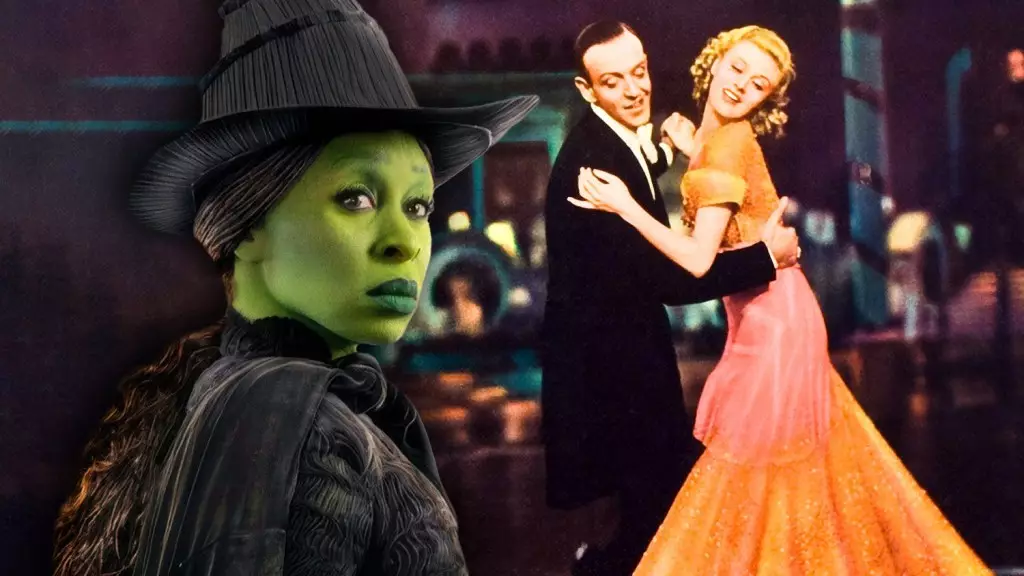The resurgence of the musical genre in contemporary cinema has sparked significant discussion about the evolving nature and characteristics of modern musicals compared to their classic predecessors. During the tumultuous periods of the COVID-19 pandemic, many individuals found solace in escapist entertainment, such as the joyful nostalgia of MGM musicals. Classics like “Singing in the Rain” and the engaging choreography of Fred Astaire in “Top Hat” served as escapist islands in a sea of uncertainty. However, as we wade into the new cycle of musicals, a discerning look reveals a tonal shift from pure joy to a more complex emotional landscape, reflecting the societies that birth them.
Historically, musicals have stood as beacons of joy and optimism, often encapsulated in simple plots featuring lovable airheads and melodious tunes. Gene Kelly and Fred Astaire embodied lightheartedness, encapsulating a carefree spirit that resonated with audiences. In stark contrast, the modern musical landscape seems to herald a new era, one where themes delve into troubling complexities rather than solely celebrating happiness. Even the most praised productions today evoke somber themes, leading one to wonder whether joy has become a less common commodity in this entertainment form.
Take for instance Timothée Chalamet’s portrayal of Bob Dylan in the upcoming film “Wonka.” At first glance, a film about a whimsical confectioner might appear to evoke the nostalgia characteristic of the genre, yet, beneath the surface lies a narrative peppered with existential questions and ambiguities. The historical weight of Dylan’s transformation during the 1965 Newport Jazz Festival captures the tension between identity and expectation, a theme almost foreign to the classic musical archetype.
Modern musicals have dared to paint their characters with greater nuance. No longer are we viewing mere archetypes rooted in shallow narratives; instead, we are being introduced to characters facing intricate dilemmas and moral conflicts. This pivot in storytelling allows the audience to connect on a deeper emotional level. Take Angelina Jolie’s portrayal of Maria Callas—a once-glorious diva grappling with the loss of her voice amidst a tumultuous life marked by the whims of a billionaire. Such characterization inevitably pushes boundaries and challenges viewers to contemplate the multifaceted nature of humanity, contrasting sharply with the uncomplicated dreams and romances of characters in classics such as “Gigi.”
The added complexity does not merely amplify the stakes for the protagonists; it also resonates with the current emotional zeitgeist, providing an avenue for audiences to reflect upon their realities. In films like “Emilia Pérez,” characters navigate a world dense with crime and identity struggles, notably distinguishing themselves from earlier musicals whose plots rarely ventured into darker thematic territories.
The Financial Viability vs. Artistic Integrity
While today’s musicals prove commercially successful—take “Wicked,” grossing over $500 million—there lingers a question about the heart of this success. Are audiences drawn to the glitzy productions and catchy scores, or is there a genuine appetite for the insightful narratives that accompany them? The box office clout attained by modern musicals reflects a burgeoning audience eager for both entertainment and depth. However, it is fair to ponder whether the emphasis on commercial viability overshadows artistic integrity, producing big-budget spectacles that prioritize showmanship over storytelling.
As we advance further into this intriguing era, figures like Cynthia Erivo and Ariana Grande are set to dominate awards ceremonies and business events, exemplifying the blend of musical talent and emotional depth. Yet, there is an undercurrent of uncertainty: Will future musicals strive to maintain this balance, or will they succumb once more to the lure of formulaic joy?
While the landscape of musicals is undoubtedly expanding beyond the nostalgic cheer of classic cinema, it simultaneously mirrors the complexities of modern life. The evolution reflects a society grappling with its emotional intricacies, ultimately revealing that musicals might not only amuse but also provoke thought and reflection. The new musical journey beckons as we embrace characters shaped by their struggles, navigating a world distinctly aware of its gray areas—an evolution that could redefine what we expect from this cherished genre for years to come.


Leave a Reply